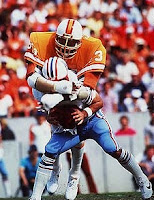Great, right? Here’s why. In 875 words, WaPo writer and Pulitzer Prize winner David Maraniss destroys the central conceit of “Moneyball,” one of the best sports movies I’d ever seen. Or so I thought.
 |
“I absolutely hate
the movie 'Moneyball'
and everything it
stands for.” BAM!
|
I don’t follow sports, let alone sport statistics. The last baseball stat I tracked was the 1969 Mets’ win-loss record which I scotch taped to my mom’s refrigerator (100-62!).
But I loved “Moneyball” because, to me, it wasn’t about sports—it was about attacking an old problem in a new way. And since I had no idea who won the 2002 World Series, or that the A’s actually set an American League record with a 20-game winning streak, I was on edge until the last out.
Then Maraniss blew that all away with one op-ed. That’s powerful story telling.
So here’s the lesson: When writing for yourself or for a client, find the most compelling perspective of the issue. Take a contrarian view when possible. (It's easier than you might think.) Write with passion. Write like you talk. Use data to support your position. And try to reach a wider audience by speaking to the broader implications of your position.
Quick aside on how thoroughly I don’t follow sports. Back in 2005, I had the opportunity to have lunch with then-Outback Steakhouse president Paul Avery at a Lee Roy Selmon's restaurant. Lee Roy's was, at the time, an Outback concept, and this one was a block from Outback's global headquarters in Tampa, FL. The place was packed with sports memorabilia. A picture of Hall-of-Famer Lee Roy himself was on the menu. But I was a bit nervous and a tad distracted trying to remember which bread plate was mine. So I opened the conversation with, “So, this Leroy Selman, was he a ballplayer?”
 |
| "I recommend the surf and TURF, Punk!" |
Hands down the worst business lunch ever.
No comments:
Post a Comment